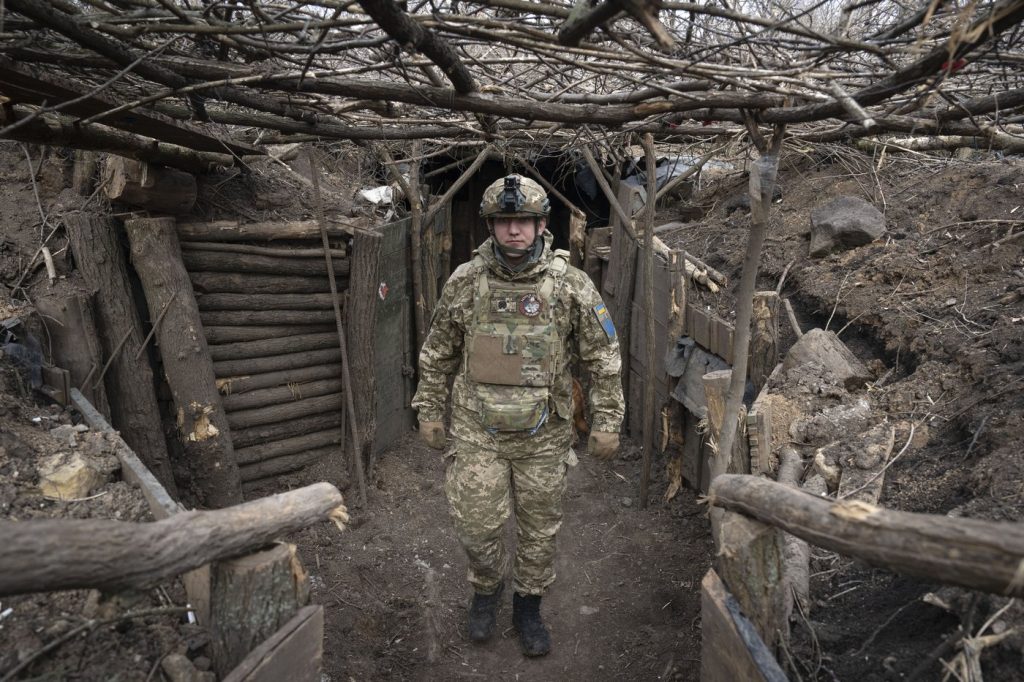BRUSSELS (AP) – As NATO convenes for its first summit since the onset of Russia's full-scale invasion of Ukraine, the atmosphere is markedly different from previous gatherings. During earlier summits, Ukrainian President Volodymyr Zelenskyy was given significant attention and visibility, but that dynamic has shifted. The ongoing conflict, now in its fourth year, remains a critical concern for Europe, with Ukraine continuing its struggle against Russian aggression to prevent a broader existential threat to the continent.
In recent developments, Russia has intensified its military actions, exemplified by a recent wave of drone attacks on Kyiv. However, geopolitical priorities have changed, particularly under the current U.S. administration led by President Donald Trump. His administration seeks to create conditions favorable for negotiations with Russian President Vladimir Putin, which may involve downplaying Ukraine's prominence at international tables. This strategic shift suggests that Ukraine's situation could be overshadowed at the upcoming NATO summit in the Netherlands, scheduled for two days starting Tuesday.
Last year's summit in Washington saw a robust commitment from NATO to support Ukraine, including long-term security assistance and a pledge of support for Kyiv's NATO membership aspirations. The year before, a more extensive communique issued in Vilnius laid out further steps, including the establishment of a NATO-Ukraine Council and fast-tracking Ukraine's membership path. However, the atmosphere at this summit promises to be less favorable for Ukraine, as U.S. leaders are currently resisting full-fledged NATO membership for the country.
Although Zelenskyy has been invited to the summit, he will not have the same level of influence or presence as he did previously. Observers expect the summit's statement to be concise, potentially limiting Ukraine's mention to a few lines. The reduced attention and support for Ukraine during this summit reflect a shift in priorities, as the U.S is now contemplating other global security challenges beyond the European theater, including issues in the Indo-Pacific region.
The backdrop of Trump's phone conversation with Putin, primarily focusing on Israel and Iran, further underlines the shifting focus away from Ukraine. Observers have noted Trump's recent assertions that Ukraine and Russia may need to "fight for a while" before a peace deal can be brokered, raising concerns among European allies about the implications of this stance.
In light of these developments, the G7 summit earlier this month also demonstrated a lack of unified support for Ukraine, as Trump failed to secure meaningful discussions surrounding the conflict. Concerns about U.S. military aid to Ukraine have also surfaced, with indications that funding levels are expected to decrease in the upcoming defense budget, thereby limiting the resources available to Ukraine for countering Russian aggression.
Despite Trump seeking to prioritize defense spending at the NATO summit, European and Canadian allies remain keen to uphold support for Ukraine and emphasize the ongoing threat posed by Russia. The summit is crucial for signaling to the world that NATO remains united in its stance against Russian actions, even as internal dynamics may shift the focus elsewhere.
Additionally, discussions at the NATO-Ukraine Council will allow for direct engagement between Ukrainian leaders and their NATO counterparts, emphasizing the continued partnership despite the challenges. The summit's brevity is designed to keep discussions focused and prevent any potential derailment of key topics, including defense spending and strategic priorities. However, the prevailing sentiment remains one of uncertainty regarding the future of U.S. support for Ukraine, with officials warning that diminishing assistance could embolden Russian aggression in the region.
This summit not only represents a critical moment for Ukraine but also highlights the broader implications of international diplomacy in addressing emerging security challenges globally. As Zelenskyy navigates these waters, the outcomes of the summit could significantly influence Ukraine's position in ongoing discussions around peace and military support.











